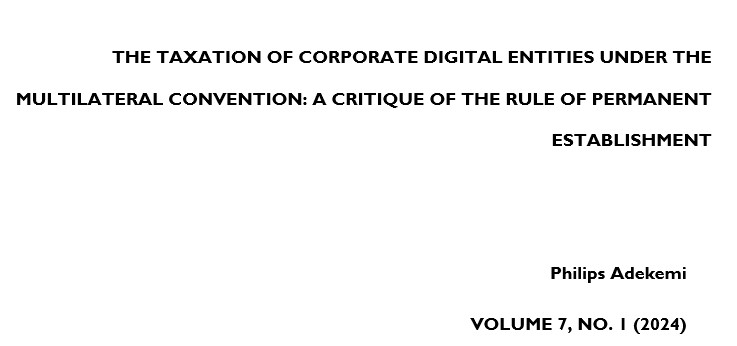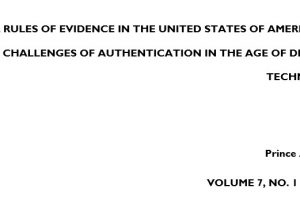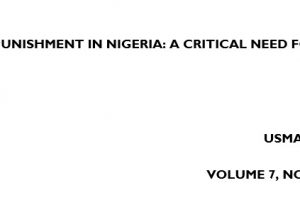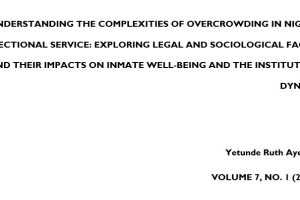THE TAXATION OF CORPORATE DIGITAL ENTITIES UNDER THE MULTILATERAL CONVENTION: A CRITIQUE OF THE RULE OF PERMANENT ESTABLISHMENT
ABSTRACT
The digital economy has significantly enhanced efficiency and fostered innovation; however, it has introduced complex policy challenges, particularly in taxing corporate entities. A stable international tax framework is essential to resolving the issues and earning the trust of all stakeholders. The global tax community has adopted a two-pillar approach. Pillar One concentrates on establishing rules for nexus and profit allocation, while Pillar Two introduces a global minimum tax designed to mitigate the unresolved issues related to Base Erosion and Profit Shifting (BEPS). This approach is anticipated to foster equity and fairness in taxation and also empower international economies to adapt to evolving business models and profit realisation tactics employed by multinational enterprises. This paper evaluates the design of the Multilateral Convention to Implement Tax Treaty-Related Measures to Prevent Base Erosion and Profit Shifting (MLC), offering insights and recommendations to address the unique challenges posed by the digital economy.
To read the full article, click here.
UNILAG Law Review, (2024) Volume 7 Edition 1.




